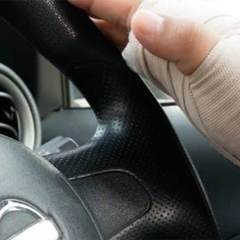Recovering from knee surgery can be a lengthy and challenging journey, but understanding the typical recovery timeline can help set realistic expectations and ease some of the anxiety that comes with the process. Whether you’re having surgery due to an injury, arthritis, or a degenerative condition, knowing what to expect at each stage of recovery can make the experience more manageable. From the initial post-op phase to full rehabilitation, this blog post will walk you through the key milestones and provide helpful tips to ensure a smooth recovery.
Here’s a general guide to the knee surgery recovery time:
- 1-3 Days: Expected hospital stay post-surgery for close monitoring.
- 6-12 Weeks: Initial recovery period with ongoing physical therapy.
- 6 Months to 1 Year: Full recovery time can vary, with most knee functions restored.
Knee surgery is often necessary to alleviate pain from conditions like arthritis or injuries. It can lead to a significant improvement in mobility and quality of life. The recovery process, however, is a crucial aspect to consider as it involves multiple stages, each affecting how quickly you can return to your normal routine.
At Ventura Orthopedics, located in Ventura, Oxnard, Camarillo, Thousand Oaks, Simi Valley, and Westlake Village, we specialize in guiding patients through every step of their recovery journey. With expert treatment and personalized care plans, we aim to restore your independence and improve your quality of life post-surgery.
Understanding Knee Surgery Recovery Time
Knee surgery recovery can be a journey, with each person’s experience being unique. The recovery phases are influenced by several factors, including whether you’ve had a total or partial knee replacement, your age, general health, and how well you prepared before surgery.
Factors Influencing Recovery
- Type of Surgery:
- Total Knee Replacement: Involves replacing the entire knee joint with a prosthesis. This surgery usually requires a longer recovery time compared to a partial replacement.
- Partial Knee Replacement: Only the damaged part of the knee is replaced. Recovery is often quicker than with a total replacement.
- Age and General Health:
- Younger, healthier individuals often recover faster. If you have underlying health conditions, your recovery might take longer.
- Preoperative Conditioning:
- Being in good physical shape before surgery can significantly affect your recovery time. Exercises to strengthen the knee before surgery can help speed up recovery.
Typical Recovery Timeline
Understanding the timeline for knee surgery recovery can help set realistic expectations:
- 1-3 Days in Hospital: After surgery, most patients stay in the hospital for 1 to 3 days. This period allows for close monitoring and initial recovery steps, like starting to walk with assistance.
- 6-12 Weeks Initial Recovery: During this phase, you’ll likely engage in physical therapy to regain mobility and strength. You’ll start using mobility aids like crutches or a walker and gradually transition to walking unaided.
- 6 Months to 1 Year Full Recovery: While many patients feel significantly better within a few months, full recovery can take up to a year. By this time, most people return to their normal activities, although some may still experience minor stiffness or discomfort.
Each phase of recovery is crucial, and following medical advice can make a big difference. The team at Ventura Orthopedics is committed to supporting you through each stage, providing personalized care to ensure a smooth recovery process.
Pain Management and Mobility Post-Surgery
Recovering from knee surgery involves both managing pain and regaining mobility. At Ventura Orthopedics, we prioritize these aspects to ensure a smoother recovery journey.
Pain Management Techniques
Managing pain effectively after knee surgery is essential for a successful recovery. Here’s how it’s typically done:
- Spinal Anesthesia: This is often used instead of general anesthesia. It allows you to wake up with less immediate pain, as it wears off gradually. This makes it easier to manage pain with other medications.
- Nerve Blocks: After spinal anesthesia fades, nerve blocks can provide 24 to 36 hours of pain relief. These are injections around the knee area that numb the nerves, reducing pain significantly.
- Anti-Inflammatories and Other Medications: Anti-inflammatory drugs, nerve pain medications like gabapentin, and certain antidepressants can aid in pain relief. Narcotics are used sparingly and only when necessary.
These techniques ensure that pain is manageable, allowing you to focus on recovery.
Importance of Physical Therapy
Physical therapy is a cornerstone of knee surgery recovery. It helps improve your range of motion, muscle strength, and overall mobility. Here’s what to expect:
- Range of Motion: Early in your recovery, physical therapy focuses on bending and straightening the knee. This helps prevent stiffness and improves flexibility.
- Muscle Strength: Strengthening the muscles around your knee is crucial. This includes exercises that target your quadriceps, hamstrings, and calf muscles.
- Home Exercises: Your therapist will provide exercises you can do at home to maintain progress. Consistency is key, and these exercises should be done daily.
- Mobility Aids: Initially, you might use crutches or a walker. As you regain strength and balance, you’ll transition to a cane and eventually walk unaided.
Physical therapy not only aids in faster recovery but also ensures that your new knee functions optimally. At Ventura Orthopedics, we tailor therapy plans to meet individual needs, helping you regain independence and return to your daily activities.
Tips for a Smooth Recovery
After knee surgery, the path to recovery involves a mix of following medical advice, avoiding certain activities, and gradually increasing your activity level. Here’s how you can steer this journey effectively.
Do’s and Don’ts
Do’s:
- Follow Medical Advice: Your surgeon and physical therapist know best. Stick to their guidance, especially regarding exercises and activity levels.
- Use Crutches: In the initial phase, crutches or a walker are essential. They help protect your knee and prevent putting too much weight on it too soon.
- Follow Exercise Regimen: Consistent exercises are crucial for regaining strength and flexibility. Your physical therapist will provide a custom exercise plan—follow it diligently.
- Gradual Increase in Activity: Slowly increase the intensity and duration of your activities. This helps prevent setbacks and aids in a smooth recovery.
Don’ts:
- Avoid High-Impact Activities: Activities like running or jumping can strain your new knee. Steer clear of them until your healthcare provider gives the green light.
- Avoid Twisting the Knee: Be cautious with movements that involve twisting your knee. This can cause unnecessary strain or injury.
By adhering to these do’s and don’ts, you set the stage for a successful recovery.
Returning to Daily Activities
Getting back to your regular routine is a key milestone in recovery. Here’s what you need to know:
- Driving: Most people can start driving again 4–6 weeks post-surgery, once they can comfortably and safely operate the vehicle. Always consult your doctor first.
- Work: If you have a desk job, you might return to work in 4–6 weeks. Jobs that involve more physical activity may require up to 3 months of recovery before returning.
- Sports: Returning to sports depends on the type of activity and your recovery progress. Low-impact sports like swimming or cycling are usually safer to resume earlier. Always get clearance from your healthcare provider.
By following these guidelines, you can ensure a smoother transition back to your daily life while protecting your new knee.
Frequently Asked Questions about Knee Surgery Recovery Time
How long does it take to walk after knee surgery?
Walking after knee surgery is a crucial step in your recovery journey. Most patients start walking with the help of a walker or crutches within a day or two following the surgery.
By the 2-3 week mark, many people can transition to using a cane or walking without assistance, depending on their progress and comfort level. It’s essential to follow your physical therapist’s guidance to avoid overexertion and ensure proper healing.
When can I return to work after knee surgery?
Returning to work depends on the nature of your job and how well your recovery is progressing. For those with desk jobs, you might be able to return within 4-6 weeks. However, if your job involves more physical activity, such as walking or lifting, it could take up to 3 months to fully recover and return safely.
Always consult with your surgeon to get the green light before resuming work to ensure you’re not risking your recovery.
What are the major complications to watch for?
While knee surgery is generally safe, there are potential complications to be aware of:
- Infection: Signs include redness, swelling, or discharge from the incision site. Contact your healthcare provider immediately if you notice these symptoms.
- Blood Clots: Swelling or pain in the calf could indicate a blood clot. It’s important to follow your doctor’s advice on blood-thinning medication and activity levels.
- Persistent Pain or Stiffness: Some discomfort is normal, but if pain or stiffness persists, it could indicate a complication. Physical therapy can often address these issues, but ongoing problems should be discussed with your surgeon.
- Implant Issues: Although rare, issues with the implant such as loosening or wear can occur. Regular follow-ups with your orthopedic surgeon can help monitor the status of the implant.
By staying vigilant and communicating with your healthcare provider, you can address complications early and ensure a smoother recovery process.
Call Ventura Orthopedics Today!
At Ventura Orthopedics, we understand that recovering from knee surgery can be a challenging journey. Our commitment to comprehensive care ensures that you receive personalized support every step of the way. From your initial consultation through rehabilitation, our team is dedicated to helping you regain mobility and improve your quality of life.
Patient support is at the heart of what we do. We offer a range of services, including physical therapy and pain management, custom to meet your unique needs. Our experienced orthopedic specialists work closely with you to develop a recovery plan that aligns with your goals and lifestyle.
With multiple convenient locations across Ventura County, including Ventura, Oxnard, and Thousand Oaks, we’re here to provide you with the care you need, close to home.
For more information on how we can assist you with your knee surgery recovery, visit our knee provider page or call us at 800.691.1280 to schedule an appointment. Our team is ready to help you on your path to recovery and support you in returning to the activities you love.















